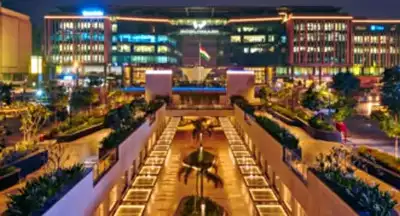Harshita Mathur, Pune
Bharti Enterprises’ real estate arm, Bharti Realty, has recently announced plans to invest over INR 6,595 crore ($794 million) in the establishment of a global business hub near Delhi International Airport. The “Global Business Hub at Aerocity” project is intended to provide 6.5 million square feet of commercial and retail space.
The second phase of Aerocity’s expansion, with commercial and retail space development, can be seen as a tactical move to make the centre a destination for worldwide businesses trying to enter India as well as multinational corporations (MNCs) searching for office space, according to the company’s CEO SK Sayal.
This new precinct, consisting of over 60 acres of integrated development, is almost three times bigger than the present Worldmark assets, and with a combined size of about 3.5 million square feet available for lease, this development will greatly improve the commercial district. With WorldMark 1, 2, and 3 in the past, the company has successfully finished the initial phase of Aerocity development. This property, which is presently owned by Rostrum Realty, a partnership between Brookfield Asset Management and Bharti Enterprises, is around 1.5 million square feet in size.
Sayal has stated that because the Delhi Development Authority (DDA) is in charge of the city’s development plans, private infrastructure development is lacking in the region, because of which developers tend to look towards alternatives like Gurgaon and Noida. However, he claims that the privatization of Delhi Airport made room for a tremendous expansion. In Sayal’s vision, this area would be transformed into a global commercial centre, establishing India as a top location for offices and shopping.
Each office tower will have a retail portion as part of the project, and there will also be an independent mall. Along with this, Bharti Realty also plans to build over 10,000 parking spaces and introduce five new assets: Worldmark 4, Worldmark 5, Worldmark 6, and Worldmark 7. The company plans to start construction in early 2024 and complete it in 2026.
Sayal has also stated that the project is supported by a robust infrastructure framework, including three metro lines, four airport terminals, the APM (Automated People Mover), the RRTS (Regional Rapid Transit System), the national highway, and expressways and freight corridors.
